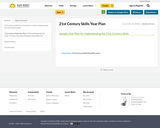
A Year plan to guide your classroom or school in implementing the 21st Century Skills
- Material Type:
- Syllabus
- Date Added:
- 10/18/2018

A Year plan to guide your classroom or school in implementing the 21st Century Skills
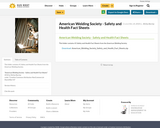
This folder contains 41 Safety and Health Fact Sheets from the American Welding Society.

Nationally recognized experts in the field of educational leadership and administration contribute to this book, with chapters focused on the past, present, and future of the preparation of our nation's school leaders. Every field of professional practice must periodically reflect on its past, assess current conditions, and chart a course for the future. This book is designed to stimulate thinking and action for the field of educational leadership. The authors portray historical achievements and short comings, describe what is transpiring now, and explore implications of current developments.

Drivers Education Infomation for the December 2024 Session.

What is a dynamical system? When we talk about systems in the most general sense, we are talking about anything that takes in a certain number of inputs and produces a certain number of outputs based on those inputs.
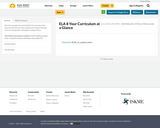
All of the essentials for teaching ELA 8.
An overview of the units in the ELA 8 curriculum, questions for deeper thinking, 'must do' writing tasks, and popular reading choices.
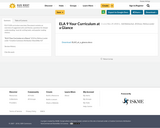
ELA 9 A/B curriculum overview.
Document contains an overview of suggested units and themes, questions for deeper understanding, 'must do' writing tasks, and popular reading choices.

A lesson using Farm 360 Virtual Tour and linking it to Science and Careers. The students will move around a 360 video to experience life on a farm or orchard. It outlines production and importance of the industry. There is an ELA writing component at the end of the lesson to be handed in.

Financial Literacy course configuration by module.
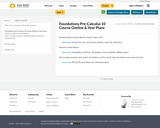
FP10: Course Outline and Year Plan Supports

Explore and understand the mental health issues that affect young people with these online courses from FutureLearn.
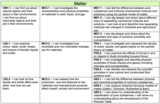
This document features grade 1-9 science and applicable health outcomes. They are organized by overarching category (ecology, nutrition, matter, etc.) and by grade grouping (1-3, 4-6, 7-9) for easy planning for Colony and multi-grade teaching settings. I can statements are from the Sun West I Can Statement Maps.

This document shows a sample schedule for a 110-minute language block. It’s important to note that this schedule should shift across the school year to better meet students’ changing needs. For example, focus may shift more to multisyllabic word reading and spelling.

This course is a part of physics course structured and designed for class room teaching. The content development is targeted to the young minds having questions and doubts. The book conforms to the standards and frame work prescribed by various Boards of Education. This course contains a 669 page book available in html and pdf formats.
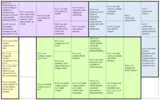
Math outcomes for grade 1-9 organized by grade and by topic. Each grade is a column so it is easy to work through a grade level. Horizontally and by colour or outline, the document is organized by topic so students and teachers can see the like outcomes within other grades. This document can help with future planning as well as with gap filling. It can also help teachers working in a Colony or multi-grade setting. I Can Statements are taken from Sun West 1-9 Outcome Tracking.
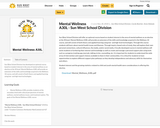
Sun West School Division has developed an optional course based on student interest in the area of mental wellness as an elective at the 30 level. Mental Wellness A30L will provide an extension of the skills and knowledge acquired in the Wellness 10 course, and will consist of both theory and applied learning using low- and high-level technologies.

The following resource contains the assets (or resources) to accompany the Sask DLC Financial Literacy 10 course.Please note that all of these resources will also be available in the Financial Literacy Hub by mid-September 2024. This will allow you to access resources by outcome for the course. This resources allows you to access all of the supports for Financial Literacy 10 in one place. A syllabus, timeline, teacher guide, course videos and supporting materials (organized by units) are provided.
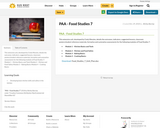
This extensive unit, developed by Cindy Menzies, details the outcomes, indicators, suggested lessons, classroom posters/student reference materials, formative and summative assessments for the following modules of Food Studies 7:
Module 1 – Kitchen Basics and Tools
Module 2 – Kitchen and Food Safety
Module 3 – Baking Basics
Module 4 – Cooking Basics
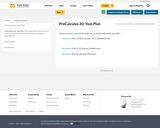
Pre Calculus Year Plan PC20

Découvrez le patrimoine et les traditions des Innus à travers leurs histoires et leur culture matérielle.
Selon la tradition orale innue, le monde est une île créée par le carcajou et le vison après un grand déluge. Les archives archéologiques montrent que les Innus et leurs ancêtres ont occupé une grande partie du Labrador et de l'est du Québec pendant deux mille ans ou plus. Les Innus se réfèrent à ce territoire comme étant le "Nitassinan".